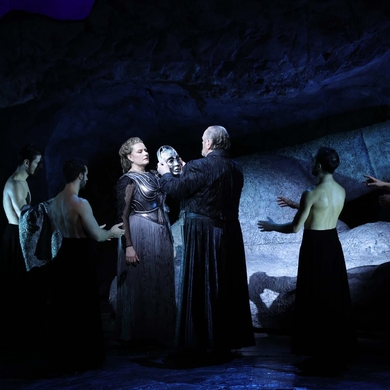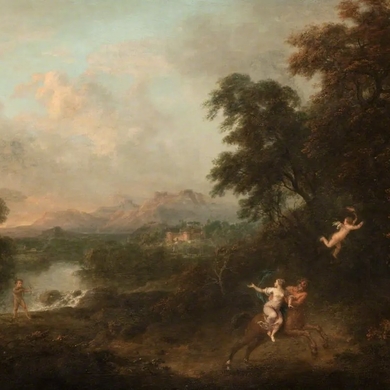Arnold Schoenberg was born in Vienna on September 13, 1874, in an era rarely matched for its intellectual and artistic ferment. He died in Los Angeles on July 13, 1951, one of a motley, wildly creative circle of refugees from the Third Reich that also included Brecht, Weill, Korngold, Feininger, Thomas Mann, Von Stroheim, and let’s not forget Marlene Dietrich. Schoenberg’s gargantuan orchestral cycle of “Songs of Gurre Castle,” dusted off for his sesquicentennial, has little to do with the mature atonal, twelve-tone experiments that would cement his reputation as one of the supreme revolutionaries of Western classical music. Rather, it’s a work from his postromantic 20s, when he was out to out-Wagner Wagner. The name Gurre evokes the cooing of doves that nest in the walls of the castle where the warlike King Waldemar (Brandon Jovanovich, tenor) sequesters his gently dovelike mistress Tove (Christine Goerke, soprano)—much to the outrage of Waldemar’s queen, who has her done away with (as narrated by the Wood Dove, Violeta Urmana, contralto). The score begins in plush, backward-looking opulence. But as the human tragedy flames out and a peaceful natural order reemerges, Schoenberg spirals into more prophetic modes. A humongous chorus spends a long time in utter silence, springs to life in a primal roar, and then wraps up in a blaze of sunlit glory. The demands of the score are stupendous, performances are rare, and ovations tend to be deafening. Zubin Mehta conducts. —Matthew Gurewitsch
Arts Intel Report
Schoenberg at 150: Zubin Mehta Conducts Gurrelieder

Zubin Mehta
When
Dec 13–15, 2024
Where
Etc
Photo courtesy of the Los Angeles Philharmonic



